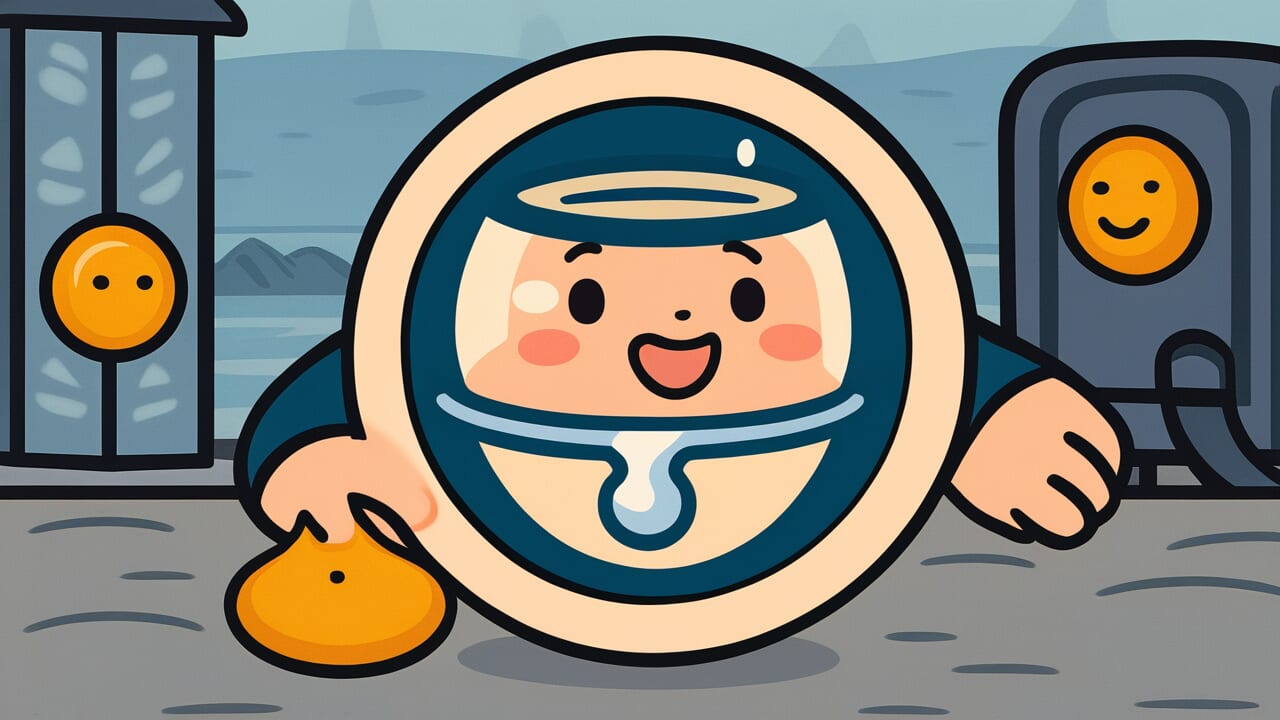How to Read “Today’s nectar is tomorrow’s iron ball”
Genzai no kanro wa mirai no tetsugan
Meaning of “Today’s nectar is tomorrow’s iron ball”
“Today’s nectar is tomorrow’s iron ball” is a warning proverb. It means that the sweet rewards and pleasures you enjoy now will become the cause of future suffering.
The proverb teaches about cause and effect. When you grab immediate benefits or pleasures without thinking, you’ll pay a heavy price later.
This saying applies to profits gained through dishonest means, excessive luxury, or success built on stepping on others. These methods go against what’s right.
Something might feel good temporarily. But it will definitely become a seed that makes your future self suffer.
Even today, this proverb helps us pause and think. It stops us when we’re about to make easy choices or follow immediate desires.
We need to ask ourselves important questions. Is this pleasure really the right path? Will it make my future self suffer? We must judge calmly.
Origin and Etymology
No one has found a definite source for this proverb yet. However, we can understand how it was formed by looking at its parts.
“Kanro” (nectar) originally comes from Buddhism. It means sweet dew that falls from heaven.
In Buddhism, kanro represents the Buddha’s teachings that remove suffering. Over time, it came to mean anything extremely sweet or pleasant.
“Tetsugan” (iron ball) means a heated iron sphere. In Buddhist tales, sinners in hell are forced to drink these as punishment. It symbolizes terrible suffering.
By combining these two contrasting words, the proverb vividly expresses cause and effect across time. It shows present pleasure leading to future pain.
The proverb clearly reflects Buddhist ideas about karma and consequences.
What’s interesting is the time element. The proverb doesn’t just contrast good and bad. It specifically contrasts “present” and “future.”
The warning is powerful. If you’re fooled by sweetness right now, suffering like drinking burning iron awaits you later.
This shows deep insight into human nature and our tendency toward short-term thinking. The proverb likely spread among common people as a warning, rooted in Buddhist worldview.
Usage Examples
- Even if you profit through dishonest methods, today’s nectar is tomorrow’s iron ball—you’ll definitely pay the price someday
- A position gained by betraying people’s trust is today’s nectar is tomorrow’s iron ball; it can’t possibly last
Universal Wisdom
This proverb has been passed down because it sees through a fundamental human weakness. We humans are surprisingly weak against sweet temptations right in front of us.
Our reason might tell us “this is wrong.” But the appeal of immediate pleasure or profit is hard to resist.
Why do people jump at short-term gains? Because present pleasure feels far more real than future suffering.
Pain that hasn’t arrived yet exists only in imagination. But sweetness we can get now definitely exists. This psychological time gap leads people to wrong choices.
Our ancestors understood this human nature deeply. That’s why they used the extreme contrast of “nectar” and “iron ball” to express the law of cause and effect memorably.
The sweet thing doesn’t turn bitter. The moment you choose the sweet thing, you’ve already planted the seed of bitterness.
This proverb reflects the eternal conflict between human desire and reason. Even as times change, this essential human weakness remains the same.
That’s why these words still resonate with us today.
When AI Hears This
The moment nectar touches your tongue, your body releases highly organized energy. Sugar dissolves into your bloodstream. In your brain, pleasure molecules bind systematically to receptors.
This “highly organized state” is the true nature of pleasure. But according to the second law of thermodynamics, this order must collapse.
For example, leave ice alone and it melts into water. Eventually it evaporates into disordered water vapor.
Similarly, the pleasure state that nectar brings disperses over time. Blood sugar crashes. Pleasure molecule receptors become exhausted and stop responding.
What’s more interesting is this: the more energy you invest to maintain pleasure, the faster disorder accelerates in the entire system.
Physicists have calculated that entropy in a closed system never decreases. In other words, turning nectar back into iron ball is impossible according to universal laws.
Addiction research shows the same pattern. The pleasure threshold keeps rising. The same stimulus can’t satisfy you anymore. This is entropy increase in the receptor system itself.
The essence of this proverb is that pleasure isn’t just a psychological phenomenon. It’s an irreversible physical process.
Just as the universe moves toward thermal equilibrium, pleasure inevitably moves toward the flat state called pain.
Lessons for Today
This proverb teaches modern people to have eyes that see the future at the moment of choice. Modern society overflows with “today’s nectar.”
Careless posts on social media. Overspending on credit cards. Working in ways that sacrifice health. These feel good right now but will definitely burden your future self.
The important thing isn’t living like an ascetic. It’s pausing just a little before choosing and asking yourself a question.
“Will this choice make me smile a year from now?” That question becomes your shield of protection.
I especially want young people to have this perspective. Life is a long journey.
Today’s small honesty creates tomorrow’s great trust. Today’s steady effort becomes tomorrow’s solid strength. The reverse is also true.
Your future self is created by your present self. When you meet sweet temptation, remember this proverb.
It’s a gift from our ancestors—gentle yet strict. I hope your future will be filled with true nectar.



Comments